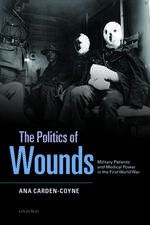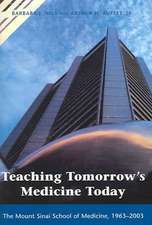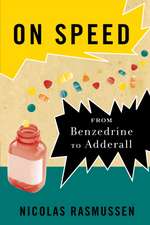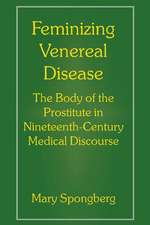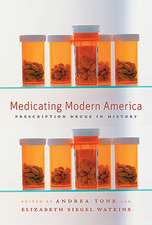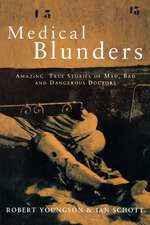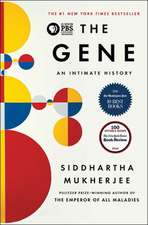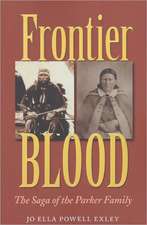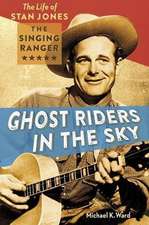Lotions, Potions, Pills, and Magic – Health Care in Early America
Autor Elaine G. Breslawen Limba Engleză Hardback – 14 oct 2012
| Toate formatele și edițiile | Preț | Express |
|---|---|---|
| Paperback (1) | 219.66 lei 6-8 săpt. | |
| MI – New York University – 28 feb 2014 | 219.66 lei 6-8 săpt. | |
| Hardback (1) | 499.26 lei 17-23 zile | +51.13 lei 7-13 zile |
| MI – New York University – 14 oct 2012 | 499.26 lei 17-23 zile | +51.13 lei 7-13 zile |
Preț: 499.26 lei
Nou
Puncte Express: 749
Preț estimativ în valută:
95.53€ • 100.01$ • 79.05£
95.53€ • 100.01$ • 79.05£
Carte disponibilă
Livrare economică 11-17 martie
Livrare express 01-07 martie pentru 61.12 lei
Preluare comenzi: 021 569.72.76
Specificații
ISBN-13: 9780814787175
ISBN-10: 0814787177
Pagini: 252
Dimensiuni: 161 x 237 x 28 mm
Greutate: 0.79 kg
Ediția:New.
Editura: MI – New York University
ISBN-10: 0814787177
Pagini: 252
Dimensiuni: 161 x 237 x 28 mm
Greutate: 0.79 kg
Ediția:New.
Editura: MI – New York University
Recenzii
"Owing to a fateful overconfidence on the part of its theorists and practitioners, early American medicine was 'a mess,' writes Elaine Breslaw. In this learned and thoroughgoing history, she tidies up that mess, exploring just about every conceivable health issue, including sanitation, bleeding, fertility, abortions, and childbirth complications, mental illness, painkillers, hydropathy, quackery, legal questions, and treatment across the color line. Lotions, Potions, Pills, and Magic is well-informed, carefully contextualized, and written with great clarity. By putting the vocabulary and practice of early health professionals under a microscope, Breslaw provides an authoritative examination of her vulnerable patient: America." Andrew Burstein, Charles P. Manship Professor of History, Louisiana State University"Lotions, Potions, Pills, and Magic is much more than a history of health in early America. It is a history of struggle, as natives and newcomers alike grappled with the obstacles imposed by biology, ecology, and fellow human beings. Breslaw's fearless appraisal, supported by stories and anecdotes, entertains, provokes, and cajoles. In the end it calls for a frank reconsideration of the history of America, its health, and its doctors." Elizabeth A. Fenn, Walter and Lucienne Driskill Associate Professor of Western American History, University of ColoradoThis is a wonderfully informative, though often unsettling, reminder that today's American medical practice, based on enlightened science, rigorous medical education, and sound public health policies, is a quite recent phenomenon. Until the late nineteenth century, the causes of diseases were largely unknown; even the most prestigious doctors applied an unfortunate array of remediesespecially opiates and blood-lettingthat usually did more harm than good. Elaine Breslaw's welcome narrative (I've long wanted just such a book) reveals how Americans from the early seventeenth century to the late nineteenth survived, or did not, the nation's helter-skelter medical practices, both popular and professional. She is as adept at describing the evolution of childbirth customs and treatment of the mentally ill as she is at explaining how major epidemics such as small pox, yellow fever, and cholera wreaked havoc on American communities and why 'surgeons' could neither treat the symptoms effectively nor prevent their spread. This is a thoughtful and engrossing synthesis of the best literature on American medical history. Alden T. Vaughan, Professor Emeritus, Columbia University"This impressive synthesis of health care in early America ranges from the catastrophic disasters of initial contact to the nutrition and food ways of early settlers, from childbirth to therapeutic practices, from informal folk healers to a medical establishment, from the training of doctors to public health solutions. It is admirably comprehensive." Philip D. Morgan, Harry C. Black Professor of History, Johns Hopkins University
"Owing to a fateful overconfidence on the part of its theorists and practitioners, early American medicine was 'a mess,' writes Elaine Breslaw. In this learned and thoroughgoing history, she tidies up that mess, exploring just about every conceivable health issue, including sanitation, bleeding, fertility, abortions, and childbirth complications, mental illness, painkillers, hydropathy, quackery, legal questions, and treatment across the color line. Lotions, Potions, Pills, and Magic is well-informed, carefully contextualized, and written with great clarity. By putting the vocabulary and practice of early health professionals under a microscope, Breslaw provides an authoritative examination of her vulnerable patient: America." Andrew Burstein, Charles P. Manship Professor of History, Louisiana State University "Lotions, Potions, Pills, and Magic is much more than a history of health in early America. It is a history of struggle, as natives and newcomers alike grappled with the obstacles imposed by biology, ecology, and fellow human beings. Breslaw's fearless appraisal, supported by stories and anecdotes, entertains, provokes, and cajoles. In the end it calls for a frank reconsideration of the history of America, its health, and its doctors." Elizabeth A. Fenn, Walter and Lucienne Driskill Associate Professor of Western American History, University of Colorado "This is a wonderfully informative, though often unsettling, reminder that today's American medical practice, based on enlightened science, rigorous medical education, and sound public health policies, is a quite recent phenomenon. Until the late nineteenth century, the causes of diseases were largely unknown; even the most prestigious doctors applied an unfortunate array of remedies - especially opiates and blood-letting - that usually did more harm than good. Elaine Breslaw's welcome narrative (I've long wanted just such a book) reveals how Americans from the early seventeenth century to the late nineteenth survived, or did not, the nation's helter-skelter medical practices, both popular and professional. She is as adept at describing the evolution of childbirth customs and treatment of the mentally ill as she is at explaining how major epidemics such as small pox, yellow fever, and cholera wreaked havoc on American communities and why 'surgeons' could neither treat the symptoms effectively nor prevent their spread. This is a thoughtful and engrossing synthesis of the best literature on American medical history." Alden T. Vaughan, Professor Emeritus, Columbia University "This impressive synthesis of health care in early America ranges from the catastrophic disasters of initial contact to the nutrition and food ways of early settlers, from childbirth to therapeutic practices, from informal folk healers to a medical establishment, from the training of doctors to public health solutions. It is admirably comprehensive." Philip D. Morgan, Harry C. Black Professor of History, Johns Hopkins University
"Owing to a fateful overconfidence on the part of its theorists and practitioners, early American medicine was 'a mess,' writes Elaine Breslaw. In this learned and thoroughgoing history, she tidies up that mess, exploring just about every conceivable health issue, including sanitation, bleeding, fertility, abortions, and childbirth complications, mental illness, painkillers, hydropathy, quackery, legal questions, and treatment across the color line. Lotions, Potions, Pills, and Magic is well-informed, carefully contextualized, and written with great clarity. By putting the vocabulary and practice of early health professionals under a microscope, Breslaw provides an authoritative examination of her vulnerable patient: America." Andrew Burstein, Charles P. Manship Professor of History, Louisiana State University "Lotions, Potions, Pills, and Magic is much more than a history of health in early America. It is a history of struggle, as natives and newcomers alike grappled with the obstacles imposed by biology, ecology, and fellow human beings. Breslaw's fearless appraisal, supported by stories and anecdotes, entertains, provokes, and cajoles. In the end it calls for a frank reconsideration of the history of America, its health, and its doctors." Elizabeth A. Fenn, Walter and Lucienne Driskill Associate Professor of Western American History, University of Colorado "This is a wonderfully informative, though often unsettling, reminder that today's American medical practice, based on enlightened science, rigorous medical education, and sound public health policies, is a quite recent phenomenon. Until the late nineteenth century, the causes of diseases were largely unknown; even the most prestigious doctors applied an unfortunate array of remedies - especially opiates and blood-letting - that usually did more harm than good. Elaine Breslaw's welcome narrative (I've long wanted just such a book) reveals how Americans from the early seventeenth century to the late nineteenth survived, or did not, the nation's helter-skelter medical practices, both popular and professional. She is as adept at describing the evolution of childbirth customs and treatment of the mentally ill as she is at explaining how major epidemics such as small pox, yellow fever, and cholera wreaked havoc on American communities and why 'surgeons' could neither treat the symptoms effectively nor prevent their spread. This is a thoughtful and engrossing synthesis of the best literature on American medical history." Alden T. Vaughan, Professor Emeritus, Columbia University "This impressive synthesis of health care in early America ranges from the catastrophic disasters of initial contact to the nutrition and food ways of early settlers, from childbirth to therapeutic practices, from informal folk healers to a medical establishment, from the training of doctors to public health solutions. It is admirably comprehensive." Philip D. Morgan, Harry C. Black Professor of History, Johns Hopkins University
Notă biografică
Descriere
Describes the evolution of public health crises and solutions



